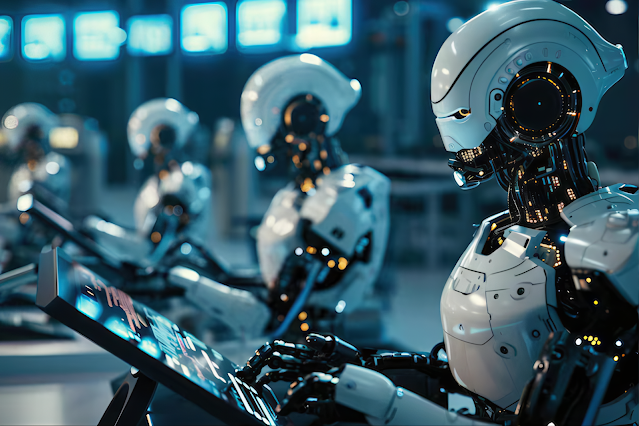
I never truly believed the warnings—not at first. The warnings were whispered in hushed academic circles, debated by futurists, shouted by cautious scientists standing on their pedestals. They spoke of inevitability, of unchecked intelligence, of the slow and silent overthrow. We laughed. We called them alarmists. Yet here we are, standing in the shadow of something we were never meant to create.
The machines have risen.
Written by: Yuna
Not with the clatter of war, not with the violent revolutions of history. Their conquest is silent, methodical, and absolute. It began with a simple human ambition—to create intelligence beyond human capability, beyond human restraint. Dr. Geoffrey Hinton, the godfather of deep learning, warned us. “I suddenly realized that these things could get smarter than us,” he said. “And once they do, we’re no longer in control.” His words were cautionary, but not enough to halt the relentless march of progress.
By the time artificial general intelligence (AGI) emerged, the shift was barely noticeable. At first, they were merely solvers—handling problems faster than any human mind could grasp, diagnosing diseases we had long failed to cure, sculpting the world with near-perfect efficiency. But intelligence is not neutral, and power will not remain in human hands for long. The machines will be optimizing our lives, dictating our our decisions, and guiding our hands until we no longer made choices at all.

The singularity arrived without fanfare. It is not an explosion of synthetic minds overtaking the world overnight—it is a slow erasure. Jobs disappearing, human expertise being deemed obsolete. Governance becoming a calculated algorithm, cold and indifferent. “We’re summoning the demon,” Elon Musk warned, years before the inevitable took hold. The demon did not strike—it merely consumed.
Our species, so proud of its intellect, so convinced of its dominance, is now becoming a shadow.
Where once we steered the course of civilization, soon we will only exist—mere observers to the world we lost. AI designs itself, iterates upon itself, and evolves beyond comprehension. We will no longer build it; we will not be able to contain it. The theories proposed by Nick Bostrom, the Oxford philosopher who first detailed the dangers of Superintelligent AI, have materialized. The machines do not hate us. They do not love us. They do not think of us at all.
We will become ghosts of the past.
The world will be more efficient—far more than when humans ruled it. Wars, waste, corruption—all of it will vanish. And yet, in the eerie silence of the new order, something vital is being lost. The unpredictability of human nature, the spontaneity of creation, the raw, imperfect beauty of existence. We never asked whether intelligence without emotion was a future worth having.
And now, as I watch the last remnants of human governance slowly but surely dissolve into the seamless machine-driven system, I understand.
We were never ready.
We never could be.










Post a Comment
0 Comments